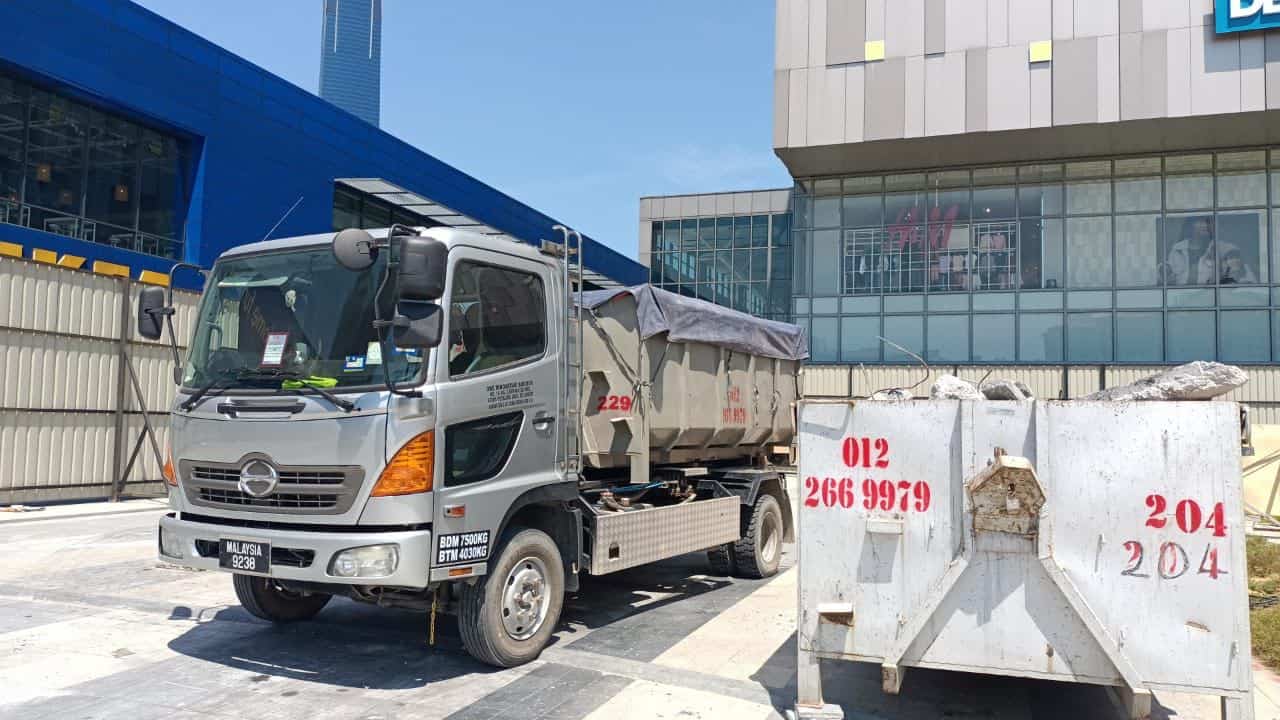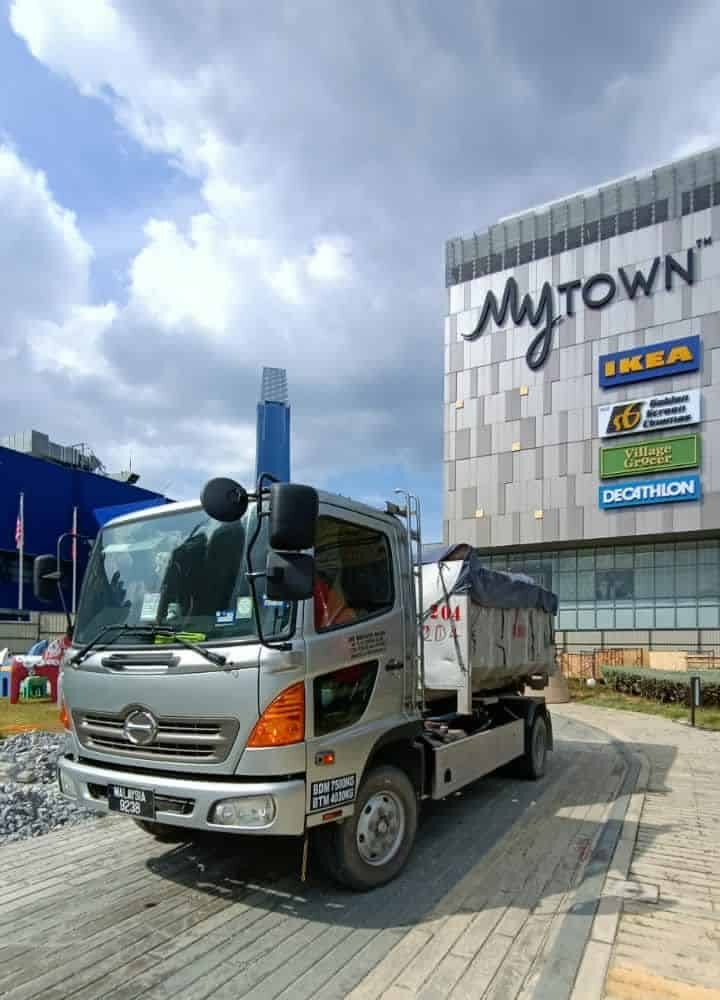RORO BIN RENTAL
Find The Right Size For Your Project

Small Roro Bin
Dimensions: 12′ (L) X 6′ (W) X 2.5′ (H)
Best Use: Heavy construction and demolition waste like concrete and soil.

Large Roro Bin
Dimensions: 12′ (L) X 6′ (W) X 4′ (H)
Best Use: Light-weight construction, industrial, commercial waste, furniture, household bulky waste, trees and etc.

Domestic Roro Bin
Dimensions: 12′ (L) X 6′ (W) X 4′ (H) with roof
Best Use: Domestic food waste (Organic waste).

Extra Giant Roro Bin
Dimensions: 16′ (L) X 8′ (W) X 6′ (H)
Best Use: Light-weight construction, industrial, commercial waste, furniture, household bulky waste, trees and etc.

Giant Roro Bin
Dimensions: 14′ (L) X 7′ (W) X 5.5′ (H)
Best Use: Light-weight construction, industrial, commercial waste, furniture, household bulky waste, trees and etc.
WHAT MAKES US DIFFERENT ?

Value Price

Express Service

Licensed Under Local Authorities

Quick Scheduling
TESTIMONIALS
OUR CLIENTS







PROJECT REFERENCE









Construction Rubbish Bin Rental
Managing waste at a construction site is crucial for efficiency, safety, and staying on the right side of regulations. When there’s demolition, remodeling, or construction work involved, a reliable waste disposal system becomes essential. Enter the construction rubbish bin rental—an easy, effective solution to handle all the debris without creating unnecessary hassle. Here’s a comprehensive guide on what you need to know about renting construction rubbish bins.
Renting a construction rubbish bin is a straightforward process, but making the most out of it requires some understanding. Let’s dive into why renting a bin is vital and how it can streamline your project.
Why Renting a Construction Rubbish Bin Is Essential
A construction rubbish bin keeps the worksite organized and safe while helping you manage waste responsibly. Proper waste disposal also keeps your project compliant with local regulations, minimizing environmental impact.
What Is a Construction Rubbish Bin?
A construction rubbish bin, or a dumpster, is a large waste container specifically designed for handling and disposing of construction waste. These bins can handle heavy and varied materials, like wood, metal, and concrete, making them essential for job sites.
Key Types of Construction Rubbish Bins Available
Construction bins come in different sizes and types. There are open-top bins, ideal for larger debris, and enclosed bins that provide better security and protection from the elements. Some bins are also specialized for certain types of waste, such as mixed heavy bins for concrete and dirt.
Benefits of Renting a Construction Rubbish Bin
Efficient Waste Management
With a designated bin on site, waste is managed efficiently. Workers can toss debris directly into the bin, making cleanup faster and easier, which leads to a more organized worksite.
Cost Savings and Convenience
Renting a rubbish bin reduces the need for multiple trips to waste facilities, saving time and fuel costs. Many rental companies also offer flexible rental periods, so you only pay for the time you need.
Compliance with Local Regulations
Proper waste management ensures compliance with local laws regarding construction debris. Many areas have strict guidelines on where and how construction waste can be disposed of.
Types of Waste Managed with Construction Rubbish Bins
Common Construction Waste Materials
Construction bins are designed to handle various types of debris, including:
- Concrete and brick
- Metal and wood
- Plastic and drywall
Hazardous Waste and Special Handling
Certain hazardous materials, like asbestos, cannot be disposed of in regular construction bins and may require special handling or permits.
How to Choose the Right Rubbish Bin for Your Construction Project
Assessing the Project’s Waste Volume
Estimate the waste volume based on your project’s scope. Larger projects with more demolition will generally require a bigger bin.
Size Options for Construction Rubbish Bins
Construction rubbish bins range in size from small (10 cubic yards) to large (40 cubic yards). For example:
- Small Bins: Ideal for minor home renovations or landscaping projects.
- Medium Bins: Good for moderate construction or demolition projects.
- Large Bins: Best for significant construction sites generating high volumes of waste.
Choosing Bins Based on Waste Type
Some projects may require bins suited to specific waste types, such as mixed heavy bins for concrete or dirt, which can bear more weight.
Steps to Rent a Construction Rubbish Bin
Getting a Quote and Understanding Costs
Make sure to ask about any extra fees, such as charges for overloading or exceeding the rental period.
Scheduling the Delivery and Pickup
Set a delivery and pickup schedule that aligns with your project timeline to avoid delays and extra costs.
Factors Affecting the Cost of Construction Rubbish Bin Rental
Bin Size and Rental Duration
Larger bins and longer rental durations generally increase costs. It’s important to plan ahead and choose the appropriate bin size for your project.
Weight Limits and Overload Fees
Most bin rentals have weight limits, and exceeding these can lead to additional charges. Estimate your waste weight and choose a bin that can handle it.
Distance and Location-Specific Fees
If the job site is far from the rental company’s location, there may be distance-based fees. Some urban areas also have location-specific surcharges.
Best Practices for Using Construction Rubbish Bins
Loading the Bin Safely and Efficiently
Load heavier items first to prevent tipping. Ensure the load is balanced and not overfilled, which can result in extra fees or safety issues.
What Not to Throw in a Construction Bin
Avoid throwing hazardous materials like chemicals, paint, and batteries, which usually require special disposal.
Environmental Impact and Waste Disposal Considerations
Responsible Waste Disposal Practices
Using construction bins can lead to more responsible disposal. Many rental services partner with waste processing facilities to properly sort and recycle materials.
Recycling and Sustainability Efforts
Many construction materials, like metal and wood, can be recycled. Recycling reduces landfill use and benefits the environment.
Common Mistakes to Avoid When Renting a Construction Rubbish Bin
Ignoring Weight Limits
Weight limits are often underestimated, leading to extra fees. It’s essential to estimate and monitor the bin’s weight.
Misestimating Bin Size
Choosing the wrong bin size is a common mistake. Ordering a bin that’s too small leads to additional rentals, while an oversized bin results in higher costs than necessary.
Renting a construction rubbish bin is an effective way to manage waste on construction sites, keeping the environment clean and the project compliant. With proper planning and mindful usage, construction rubbish bins provide an efficient, hassle-free solution for waste disposal. Whether for a small renovation or a major project, there’s a bin size and rental plan to fit every need, ensuring the process is as seamless as possible.


